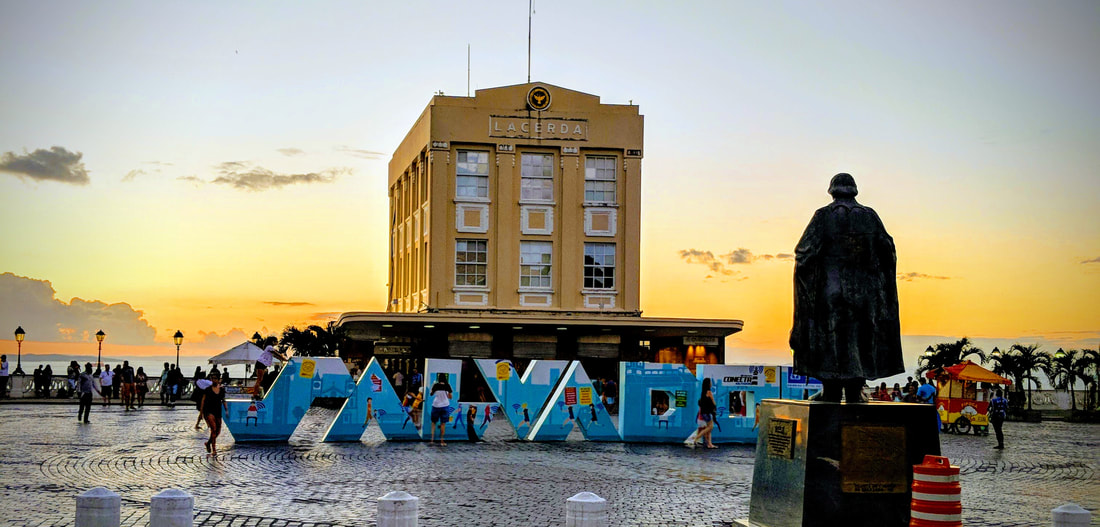|
On October 30, 2007 Brazil won the bid to host the 2014 FIFA World Cup. I had just defended my Master's Thesis and was starting my Ph.D. program. At that point I wasn't even sure what my dissertation topic was going to be, or if I would ever get a job... But one thing popped in my head as soon as I heard the news. I knew then and there that if by 2014 I had finished my Ph.D. and was at an institution that promoted short term study abroad courses, I was going to propose a study-abroad course to Brazil on the politics of the FIFA World Cup.
Things worked out well on that front. In 2012 I started as a VAP at Luther College with just enough time to propose then plan a January Term course to Brazil. The title was Politics and World Cup in Brazil, and the focus of the course was the connection between mega-events like the World Cup and the economic and political developments of the country. We went a few months prior to the World Cup and visited four host cities: Brasilia, Rio de Janeiro, Recife, and Manaus. The course attracted mostly soccer players with 14 of the 16 students who went playing for the school's men's or women's team. This trip was a blast for students and they learned a lot along the way. One thing that they kept asking was the connection between socio-economic inequality and race in Brazil. You can see some of these discussions in their blog posts. So in 2017 when I took students to Brazil again I decided to shift the focus to address some of the key question asked by my students. At this time Brazil was in the middle of many have called their worst economic depression, so our conversations about inequality, poverty and race would be timely. The course, titled Development, Inequality, and Race visited three cities: Salvador, Rio de Janeiro, and Brasilia. The combination of lectures and visits to key places in the three cities made for a great engaging course. The students were also great, and shared their experiences on the course blog. Because this time there were many more women in the course than men, questions regarding gender and inequality were very prevalent in our discussions. Fast forward to today. Brazil is still going through a deep economic crisis, and the current president (elected in 2018) is known for his questionable views on race and gender (check it out here and here, even labeling himself "prejudiced with pride." This seems like an appropriate time to focus a Brazil study abroad course on issues widely discussed by my students in previous courses and widely visible in Brazil's current landscape. Now at a new institution I am excited to take students to Brazil once again. At the College of Saint Benedict and Saint John's University (CSBSJU), a new study abroad model allows us to take an on-campus course for half a semester in the spring and then spend three week in Brazil in May. I developed a course titled Inequality, Race, and Gender in Brazil and will take nine students to Brazil in May, where we will spend most of time in Salvador, Bahia while also visiting other parts of the state. I created this blog with the intent to create a space where my students can find some popular resources beyond what we will cover in class this spring and to share my students' blog posts when we get there in May of 2020. I hope this can also help other faculty members who take students to Brazil or hope to take them one day with general resources that can be helpful in a course about race, gender, and inequality in Brazil. In the next months I hope to share some sources, resources, and discussions I have with my students in class. If you stumble upon this blog and have a question, do not hesitate to ask it on the comments section or send me an email.
1 Comment
|
Archives
June 2024
Categories
All
|

 RSS Feed
RSS Feed
